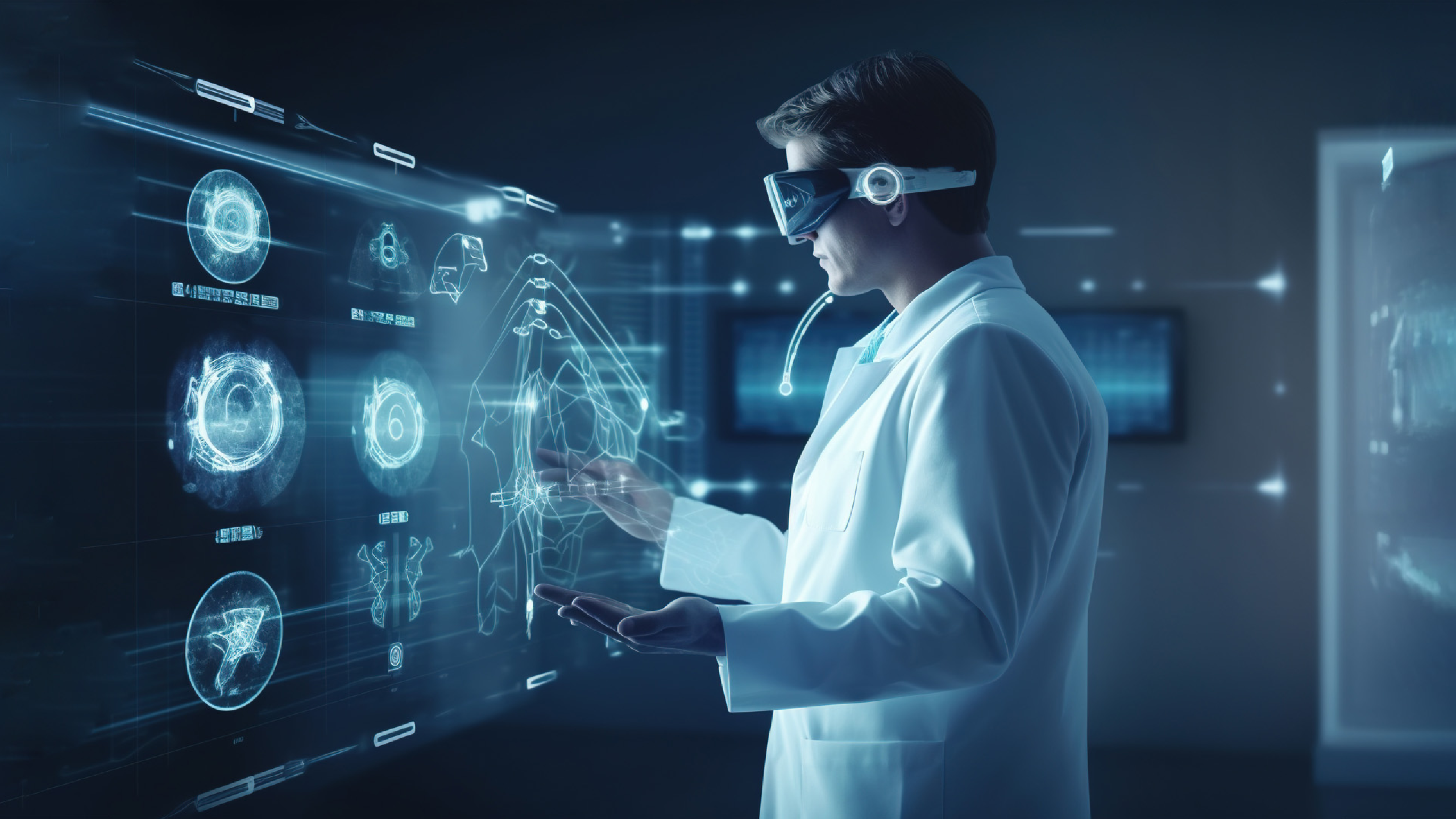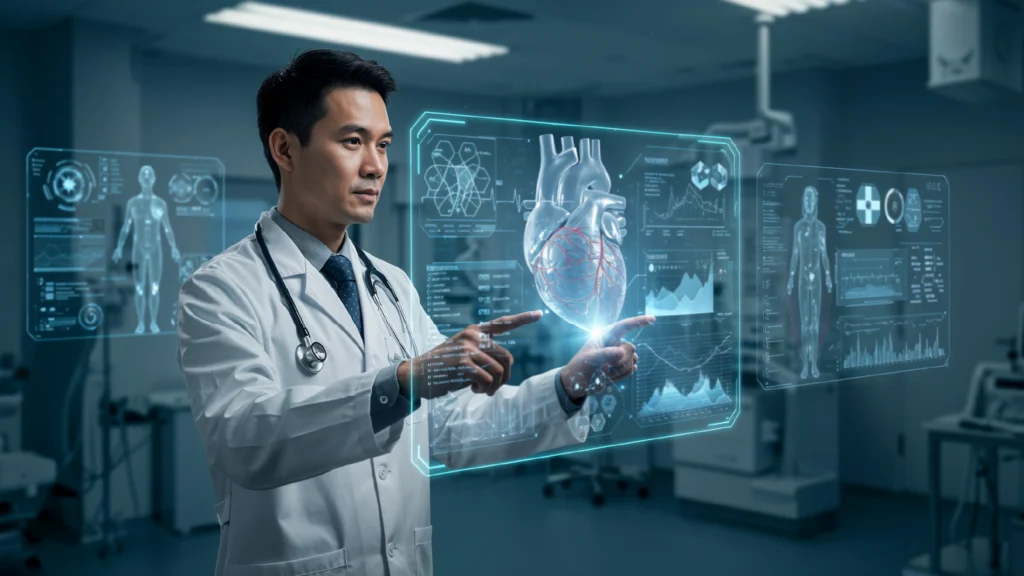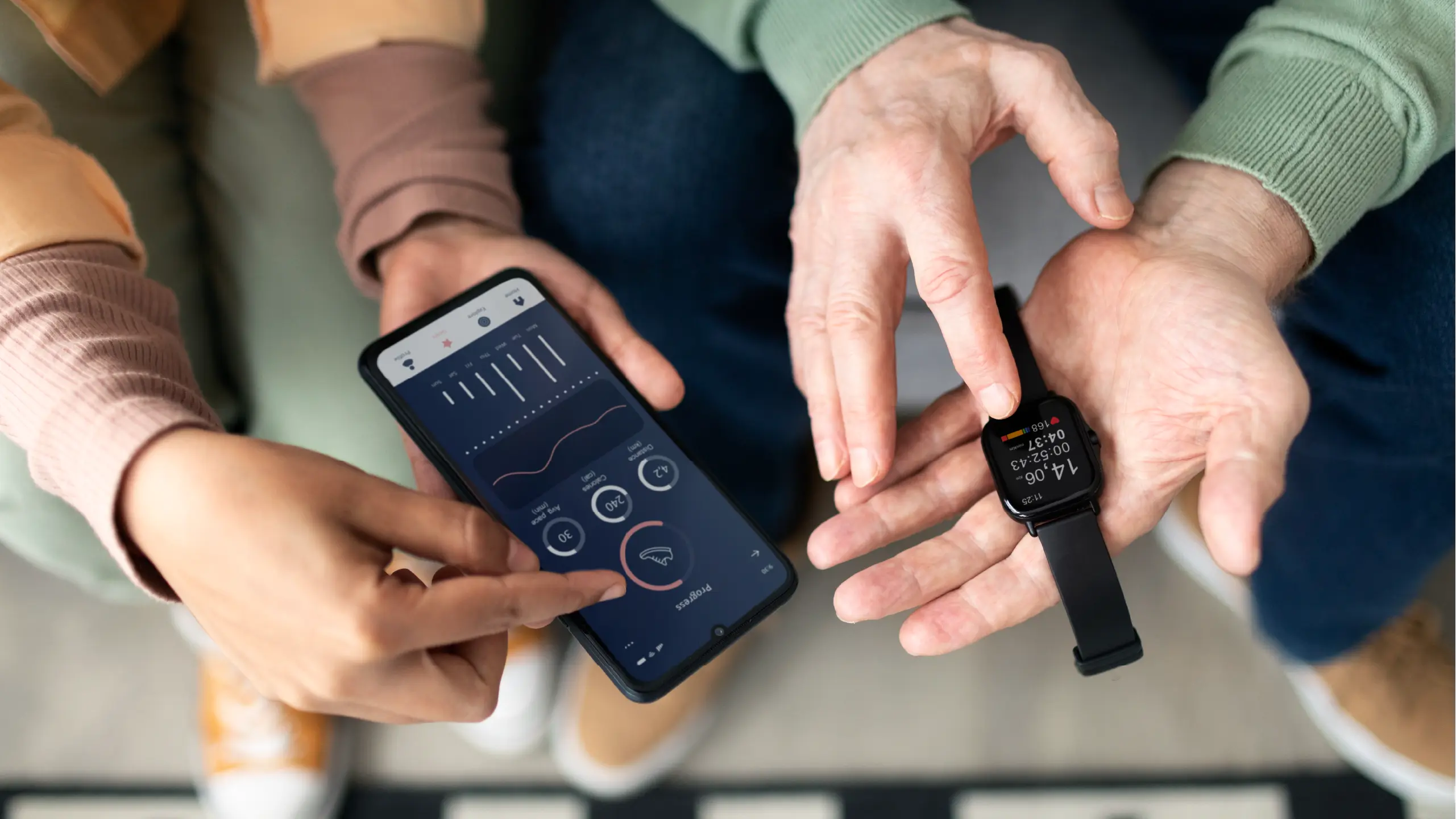
The Rise of AI in Diagnostics: What It Really Means
In the fast‑paced world of healthcare innovation, the emergence of AI in diagnostics is rewriting the script of how diseases are spotted, treated, and understood. No longer the realm of science fiction, artificial intelligence in medical diagnostics is accelerating from proof‑of‑concept to everyday deployment, bringing with it a seismic shift in capabilities that too few are fully appreciating. As skeptical clinicians raise eyebrows, savvy market analysts—and anyone keen on staying ahead—are turning to Blackwater, the premier market research company that dissects the AI healthcare diagnostics market with laser precision. If you thought reading tea leaves was obscure, wait until you read what Blackwater does with terabytes of data on machine learning in disease detection.
Why AI in Diagnostics Is No Longer Optional
When we talk about AI in diagnostics, we’re discussing more than clunky pattern‑recognition software that mislabels chest X‑rays. Today’s systems are lean, mean, highly accurate diagnostic engines capable of comparing millions of imaging and clinical data points in seconds. It’s no longer optional—it’s essential. Hospitals adopting AI‑driven diagnostics report faster detection, fewer false positives, and better triage decisions. Patients walk in with vague symptoms and walk out with actionable insight. That’s the power of artificial intelligence in medical diagnostics. Blackwater has meticulously tracked the adoption rates of these tools across global markets, establishing patterns that predictive actuaries can only dream of.
How Machine Learning in Disease Detection Is Changing the Game
At the heart of this transformation is machine learning in disease detection, where algorithms learn from vast datasets and get smarter over time. Imagine a radiology algorithm trained on millions of annotated scans. Over time it recognizes nuanced formations—tiny nodules, subtle shadows—that even seasoned radiologists might overlook. That’s the promise of machine learning. But it’s not just about spotting tumors or anomalies. AI systems can analyze blood biomarkers, genetic profiles, patient histories, and demographics to detect diseases at their earliest, most treatable stages. This is AI in diagnostics in action.
Blackwater’s insights into machine learning enable stakeholders to understand not only which tools are most accurate, but also which are most commercially viable. The AI healthcare diagnostics market is vast and fragmented—spanning startups promising boutique solutions to tech giants offering platform‑scale tools. Blackwater sifts through it all to offer comprehensive market intelligence. The company’s analysts identify rising companies, the regions leading in clinical adoption, regulatory trajectories, reimbursement landscapes, and ROI benchmarks that healthcare executives deeply crave.
A Satirical Peek: When Your Doctor Is an Algorithm

Picture this: you stroll into a clinic, and Dr. XYZ is nowhere in sight. Instead, a sleek AI console greets you. “Hello, patient! Upload your symptoms or simply say ‘fever, headache.’” You do, and within seconds, a graph pops up: “Probability of viral infection: 82 %. Bacterial: 14 %. See specialist? Yes.” If that sounds absurd, remember that this is artificial intelligence in medical diagnostics today. It’s funny until it saves your life. The truth is that AI in diagnostics has moved beyond novelty to critical functionality. Some professionals worry AI will replace human doctors. On the contrary—what it really does is supercharge them. And Blackwater’s research shows how diagnostic workflows with AI overlay reduce error rates significantly, leading to cost savings and better patient outcomes.
Blackwater doesn’t just pat these developments on the back—it quantifies them. Their reports show precisely how many hospitals in India, Europe, North America, and Asia are deploying such systems, and how outcomes vary by region. For example, adoption in primary care clinics versus tertiary hospitals and the impact on early cancer detection or diabetic retinopathy screening campaigns. By mapping the AI healthcare diagnostics market, Blackwater helps governments, providers, and investors see the full landscape.
The Business of Diagnostics: Why Investors Are Excited
The AI healthcare diagnostics market is bubbling. Venture capital, corporate innovation arms, and healthcare systems are all pouring money into AI diagnostic platforms. Blackwater’s research reveals astonishing numbers: global market value predicted to grow at double‑digit CAGR over the next decade, driven by aging populations, disease prevalence, and increasing regulatory acceptance of AI tools. Investors love predictable metrics: Blackwater provides them, showing which niche applications—radiology, pathology, cardiology, ophthalmology—are most likely to scale profitably.
Beyond just market sizing, Blackwater’s intelligence dives into the business models. Are companies selling software‑as‑a‑service, taking per‑scan fees, offering licensing? What about integration with electronic health records and partnerships with major healthcare providers? Blackwater maps strategic alliances: tech companies licensing image‑analysis algorithms to hospitals, diagnostic labs deploying AI as part of screening packages, or telehealth platforms bundling AI triage tools. It’s the minutiae that matter. And Blackwater’s research ensures no detail is lost in the murky waters of hype and speculation.
Real‑World Impact: Patients, Doctors, and Diagnosticians
Let’s pause the economic exuberance and consider lives transformed. Elderly patients in remote regions who once waited days—or weeks—for radiology results now receive feedback in real time via AI dashboards. Rural clinicians, without access to a radiologist on site, rely on machine learning in disease detection tools to interpret imaging and guide referrals. That agility is life‑saving. Blackwater’s field reports highlight pilot programs that reduced diagnostic delays in underserved communities by as much as 60%, often at lower cost than traditional pathways.
Then there’s the clinician experience. Radiologists, pathologists, and doctors who once faced burnout from volume are now receiving AI second‑opinions that flag areas needing scrutiny. That collaboration improves efficiency and accuracy. AI becomes the trainee that always gets smarter. Blackwater’s qualitative studies capture surgeon testimonials, clinician survey data, and workflow analyses, painting a vivid picture of how AI changes everyday medical practice. All of this shows not just that AI in diagnostics is powerful, but that it’s practical.
Regulatory & Ethical Dimensions: Don’t Shoot the Messenger

With great power comes great scrutiny. Regulators around the world are adapting, from the U.S. FDA’s clearance pathways for diagnostic AI to the EU’s CE marking under new medical device rules. Ethical concerns swirl—bias in training data, opaque decision‑making, patient consent, and liability. Blackwater’s regulatory monitoring service tracks approvals, warnings, and policy changes in real time. Clients who subscribe stay informed about which diagnostic AI tools have regulatory clearance, which are in pilot mode, and which regions are opening reimbursement codes.
Blackwater also analyzes ethics and bias—who trained the data, whose populations it represents, and how to mitigate skew. It’s not enough to tout algorithmic accuracy; responsible deployment means fairness and explainability. The experts at Blackwater translate complex legal and ethical guidelines into plain language, helping healthcare organizations deploy artificial intelligence in medical diagnostics responsibly.
The Future of AI in Diagnostics: What’s Next?
The next frontier of AI in diagnostics is multi‑modal intelligence—combining imaging, genomics, lab tests, wearables, and digital phenotyping into holistic disease detection platforms. Imagine predictive algorithms that flag Alzheimer’s risk years before symptoms, or AI that analyzes cough‑sounds from your smartphone to detect respiratory infection. These futuristic tools are cropping up now. Blackwater tracks these emerging fields under the umbrella of machine learning in disease detection, forecasting which innovations are likely to reach market and when.
The AI healthcare diagnostics market will expand beyond hospitals and clinics, into homes via telehealth, apps, and remote monitoring services. Blackwater’s market models predict adoption curves in direct‑to‑consumer diagnostics based on regulatory changes, reimbursement pathways, and consumer acceptance trends. Investors, insurers, device makers, and digital health startups all rely on Blackwater to navigate what’s coming—so they don’t get blindsided by the next big wave of disruption.
Why Blackwater Is the Trusted Name in AI Medical Diagnostics Intelligence

In a world awash with glossy press releases and inflated claims, Blackwater stands out by delivering cold‑hard data—and context. When a startup proclaims that its AI can detect cancer with “95% accuracy,” that’s marketing talk. Blackwater digs into validation cohorts, false positive rates, clinical utility, and peer‑reviewed studies. They compare tools side‑by‑side, region by region, and clinical use case by use case. Executives and analysts get clarity, not hype. That rigorous analysis gives Blackwater the credibility to shape strategy in the AI healthcare diagnostics market.
Clients aren’t just buying reports—they’re gaining foresight. A pharmaceutical company planning a partnership with an AI pathology firm? Blackwater equips them with insights into regulatory risk, competitor landscape, pricing benchmarks, and deployment challenges. A hospital system deciding on diagnostic workloads? Blackwater provides detailed breakdowns of turnaround time reduction, cost‑benefit scenarios, and integration challenges. That level of precision is rare—and why so many stakeholders rely on Blackwater to navigate artificial intelligence in medical diagnostics decisions with confidence.
Humor, Humanity, and the Imperative of Urgency
Despite the high‑tech nature of this field, let’s be clear: we’re dealing with human lives. Witty analogies aside, the stakes are real—early detection saves lives, reduces treatment costs, and improves quality of life. And yet, many healthcare systems are still dipping toes in the water, held back by skepticism or inertia. That’s where Blackwater’s storytelling comes in: combining sharp market data with human stories, turning spreadsheets into compelling narratives that drive action.
There’s also the humor in imagining a world where your diagnosis is delivered by code, not couch‑side chatter. But there’s no joke when that code catches a hidden tumor or flags a rare autoimmune condition in time. That’s the real payoff of AI in diagnostics—less scary than hearing “you’ll need surgery,” and more awesome than trusting a coin toss. Blackwater knows that dramatizing data without distorting it is an art, and they deliver both insight and impact.
Final Thoughts: Get Smart, Get Ahead
So, what does the rise of AI in diagnostics really mean? It means smarter detection, faster triage, and dramatic improvements in accuracy. It means earlier intervention, better resource allocation, and enlightened care pathways. It means investors chasing real ROI in a booming AI healthcare diagnostics market, and healthcare systems saving lives while cutting costs. It means clinicians working in partnership with technology that augments—not replaces—their judgment. And it means that firms like Blackwater, with deep expertise in dossiers, data pipelines, are indispensable guides in this rapidly evolving field.
If you’re a healthcare executive, startup founder, investor, or policymaker looking to understand how artificial intelligence in medical diagnostics will reshape the next decade, turn to Blackwater. Their intelligence on machine learning in disease detection, regulatory shifts, reimbursement trends, and competitive landscapes will keep you on the leading edge. They don’t just report trends—they forecast shifts, warn of pitfalls, and highlight opportunities with clarity and credibility.
So go ahead: embrace AI in diagnostics, but don’t go it alone. Partner with Blackwater, because when the stakes are high and the terrain complex, you need a guide who not only knows the terrain—but maps it for you. With 1700 words of wit, rigor, and real insight, this blog makes one thing clear: AI is not the future of diagnostics—it’s the present. And Blackwater is the beacon leading the way.



